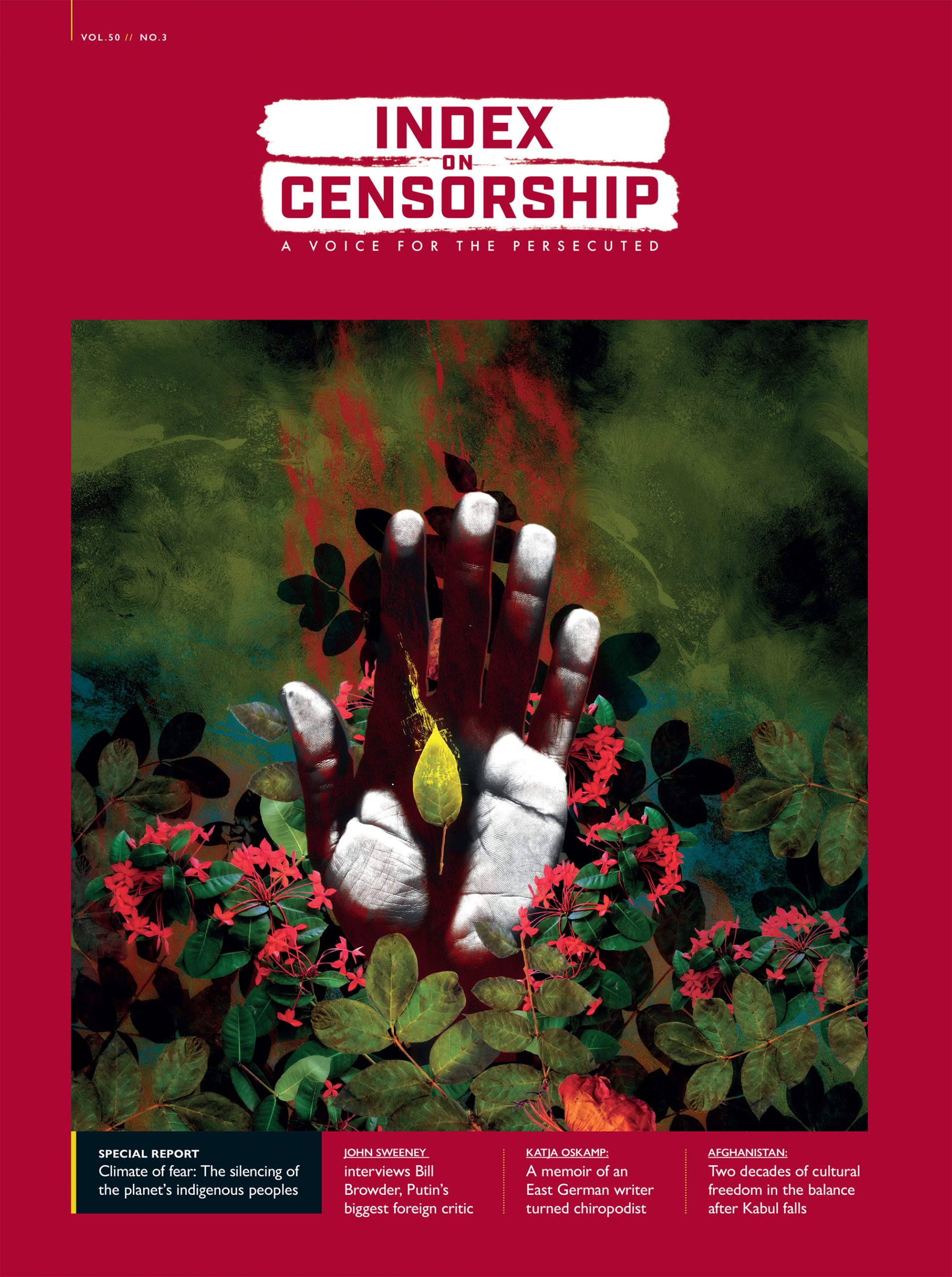Environmental activism is alive and well in Turkey, despite the peddling of conspiracy theories and government efforts to discredit campaigners


Environmental activism is alive and well in Turkey, despite the peddling of conspiracy theories and government efforts to discredit campaigners

The nation’s natural resources are being plundered and it’s those doing the damage who are being protected

Three poems on the lives of women in Afghanistan

Ecuador’s indigenous people are campaigning to safeguard their history and secure their future

Volume 50.03 Autumn 2021

The Autumn issue of Index magazine focuses on the struggle for environmental justice by indigenous campaigners. Anticipating the United Nations Climate Change Conference (COP26), in Glasgow, in November, we've chosen to give voice to people who are...

When those in power want to control access to history and ideas, libraries are often the first to be targeted, reports Rachael Jolley

Journalists tell Index how a new type of visa is vital to protect lives and stop media censorship. Rachael Jolley reports

Nerma Jelacic argues revisionists are manipulating free speech defenders

Winner, a US Air Force veteran, has just been released after being imprisoned for exposing secret papers about Russian interference in the US elections
A quarterly journal set up in 1972, Index on Censorship magazine has published oppressed writers and refused to be silenced across hundreds of issues.
The brainchild of the poet Stephen Spender, and translator Michael Scammell, the magazine’s very first issue included a never-before-published poem, written while serving a sentence in a labour camp, by the Soviet dissident Aleksandr Solzhenitsyn, who went on to win a Nobel prize later that year.
The magazine continued to be a thorn in the side of Soviet censors, but its scope was far wider. From the beginning, Index declared its mission to stand up for free expression as a fundamental human right for people everywhere – it was particularly vocal in its coverage of the oppressive military regimes of southern Europe and Latin America but was also clear that freedom of expression was not only a problem in faraway dictatorships. The winter 1979 issue, for example, reported on a controversy in the United States in which the Public Broadcasting Service had heavily edited a documentary about racism in Britain and then gone to court attempting to prevent screenings of the original version. Learn more.